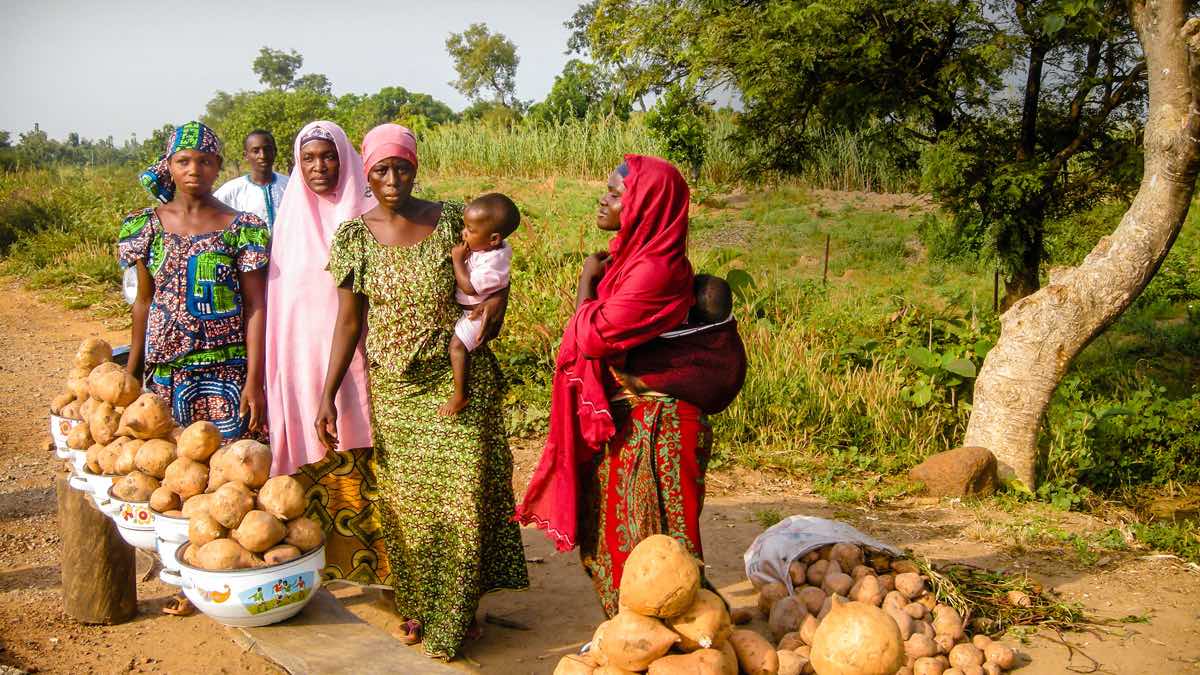The following story, by IFPRI Research Fellow Timothy Thomas, was originally published by the Huffington Post.
Before the age of the GPS, people relied on paper roadmaps when journeying to places they had never been before. It wasn’t always easy to find an accurate map, and not everyone was gifted at map readings, so trips often had many wrong turns, leading to delayed arrivals and missed events. As we are on the verge of the UN Climate Summit being held in New York on September 23, it is important to consider whether the maps we have on climate change are sufficiently up-to-date and whether we have the ability to understand them. Miscalculation could be disastrous for every person on the planet, particular the poor and vulnerable.
The purpose of the UN summit is to draw attention to the worrisome trajectory of greenhouse gas emissions, which research suggests are rising fast. The goal is to limit the earth’s temperature rise to 2 degrees Celsius. Anything more carries potentially devastating consequences: rising seas threatening coastal populations; tropical countries unable to adapt agriculture to warmer climates; devastating food crises for countries and households least capable of dealing with such catastrophes; and more severe and frequent cyclones, typhoons, floods and heat waves threatening even the wealthiest countries.
Much research has been done to predict the effects of climate change. We know much more than ever before about how rising temperatures are likely to affect the planet, and yet much more research needs to be done if we are going to successfully confront the challenges of feeding growing populations living in warmer and less predictable climates.
We need better roadmaps, for instance, to understand how to lower greenhouse gas emissions, particularly from agriculture and land. We need to learn more about how climate change will impact people, particularly farmers. And we need to develop ways for farmers and others adversely affected to adapt to the changes.
While everyone will be impacted by the projected increase of extreme weather events, it is the world’s farmers who are most vulnerable to climate change — and also among the least able to cope, particularly in developing countries. Climate researchers ought to have this group foremost in mind.
Research can also help donors prioritize investments and rule out poor options, so that less money is wasted on “wrong turns.” Research helps policymakers better understand the obstacles faced by farmers and others. With better understanding comes better policies.
The Global Alliance for Climate-Smart Agriculture, spearheaded by the UN Food and Agriculture Organization, and featured as part of the Climate Summit, is a good step in this direction, seeking to consolidate lessons learned and to propagate these ideas to the end users, the farmers. Another positive step is the announcement earlier this month by the world’s six multilateral development banks to step up financing of climate-related work; since 2011, they’ve delivered $75 billion to confront climate change.
These are welcome developments that should help boost climate research in critical areas, and there are many critical areas. We need more research, for example, to better understand the mitigating impacts of soil carbon sequestration. There has been some controversy over whether no-till agriculture leads to higher levels of carbon in soil. Also, under some conditions higher soil carbon might lead to higher emissions because of nitrous oxide production, a much more powerful greenhouse gas than carbon dioxide. In the low-fertility soils of many countries, the benefits of practices leading to higher soil carbon may outweigh concerns. Yet further research might show that increasing soil carbon through use of no-till agriculture, animal manures, agroforestry and better crop residue management is unequivocally (or at least under most circumstances) a win-win solution.
More research will also help us develop better crop models to predict the impact of climate change on yields. Currently, different models can give vastly different results. Yet better modeling could ultimately help donors, policymakers and farmers prepare for climate impact years in advance.
Perhaps most important of all involves research to develop technologies that can help small farmers in developing countries adapt to climate change. Public investment in agricultural research yields huge benefits, both for the agricultural sector and the rest of the economy. Farmers will need help in learning to manage water in hotter environments with higher evaporation rates; in acquiring new seeds that are appropriate for the new climates; in managing soil fertility; and in learning to combat increased pest threats.
Building consensus at the UN Climate Summit for definitive action among donors, governments and other key players is a critical part of the journey. We must work together to reduce emissions so that we hit the mark of not more than a 2 degree Celsius increase in temperature. But those gathered in New York should not forget the vital role of research in this journey called climate change, so that we don’t get lost, make wrong turns and potentially miss our hoped-for destination.
Timothy S. Thomas is a research fellow at the International Food Policy Research Institute specializing in climate change and agriculture issues. He has co-authored three recently published books on the adaptation of agriculture to climate change in African countries.







